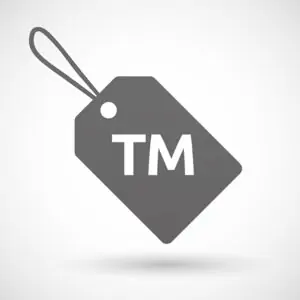Selling trademark rights: Legal basis and options
Trademark owners can sell their trademark rights. Selling trademark rights is legally unproblematic.
Neither the company associated with the trademark right nor the trademark right as a whole has to be sold. A partial sale is also possible.
In addition to the sale of trademark rights, the owner of these rights can also release their use by third parties by means of licenses and thus use the trademark rights profitably.

This article explains how trademark rights are sold or transferred, what trademark owners should bear in mind and what other options trademark owners have to exploit their trademark rights.
Inhalt
- What are trademark rights?
- How do you secure trademark rights?
- Can trade mark rights be sold?
- How much does it cost to amend a trade mark right at the DPMA?
- How are trade mark rights transferred by law?
- How can you use trade marks?
- How can a specialist lawyer for intellectual property rights help?
- Conclusion
- FAQ
1. What are trademark rights?
Trademark protection or trademark law protects trademarks and is therefore an industrial property right for names and signs. A trademark is a sign that identifies the goods and/or services or the product range of a company. A brand creates trust among the target group of the company's business activities and makes the brand unmistakable, i.e. the company can be distinguished from other companies by the brand.
A trademark can, for example, consist of words, letters, numbers and permitted special characters (word mark) or a two-dimensional design such as an object, pictogram or symbol (figurative mark). The combination of words/letters with graphic elements, e.g. the graphic representation of a product name, is referred to as a word/figurative mark. However, a trademark can also designate and protect colors (color trademark), three-dimensional shapes (3D trademark), sounds (sound trademark) or smells (smell trademark).
2. How do you secure trademark rights?
In contrast to copyright law, the protection of a trade mark only arises when it is applied for and registered in the trade mark register of the German Patent and Trade Mark Office (DPMA) in Munich (Section 4 No. 1 MarkenG). Under copyright law, a work is already protected if it has been created and has reached a certain level of creativity. Copyright registration is not required and is not provided for.
The protection of a trade mark at national level through registration in the trade mark register of the DPMA only applies to certain classes of goods and services. There are a total of 45 so-called Nice classes (34 for goods and 11 for services). When applying for a trade mark, the classes of goods and services for which trade mark protection is to apply must be specified.
Up to 3 Nice classes are included in the application fee (290 euros for electronic applications, 300 euros for postal applications). A fee of 100 euros must be paid for each additional class.
Trade mark rights can be protected at the DPMA for 10 years. After that, the term of protection can be extended by a further 10 years as often as required. Fees are charged for this: 750 euros for up to 3 classes and 260 euros for each additional class.
Trademark protection
The registration of a trade mark in the trade mark register by the DPMA grants the owner an exclusive right. Like copyright and patent law, this property right is absolute. However, the various classes of goods/services (Nice classes) mean that the trade mark right is not a monopoly (Section 14 (2) No. 1 MarkenG), as protection only extends to the Nice classes and to similar classes where there is a likelihood of confusion (Section 14 (2) No. 2 MarkenG).
However, if there is no likelihood of confusion because the classes of goods are completely different, there is no right to injunctive relief for the unprotected classes of a trade mark. The situation is different only if a trade mark becomes particularly well known and its scope of protection expands to such an extent that it can come close to a comprehensive monopoly (Section 14 (2) No. 3 MarkenG).
3. Can trademark rights be sold?
The Trademark Act came into force on 1 January 1995 and replaced the Trademark Act. Under the Trade Mark Act, the principle of accessoriness applied to the transferability of trade marks - the outdated concept of a trade mark - according to which trade marks could only be transferred together with the business or the company. This is no longer the case since the introduction of the Trade Mark Act.
With the registration of the trade mark, the trade mark owner is granted exclusive rights, including the right to freely dispose of the trade mark. This also includes the free transfer or sale of the trademark or the granting of licences (Sections 27 et seq. MarkenG). Trading with a trade mark is therefore legally permitted and possible.
Written contract makes sense
Both the transfer of a trade mark free of charge and the sale of a trade mark for consideration should be regulated in a written contract - trade mark transfer agreement or trade mark purchase agreement. The trade mark purchase agreement regulates the rights and obligations of the seller and buyer, especially when selling trade mark rights.
If you have already found a buyer for your trade mark or part of the trade mark, the trade mark transfer agreement or trade mark purchase agreement should be drafted by a specialist lawyer for industrial property rights.
As a specialist lawyer for intellectual property rights, I advise sellers of trademark rights and clients who wish to licence their trademark.
Call us now on 040 3501 6360 or send an e-mail to info@kanzlei-bennek.de.

Partial sale possible
If the trademark owner only wishes to part with part of the trademark, a partial transfer or partial sale of the trademark is also possible (Section 27 (4) MarkenG). This is particularly suitable if certain goods or services are no longer to be sold or marketed under the trade mark name.
In the case of a partial sale of a trade mark, the trade mark as such is not divided, but only different classes of goods/services are sold or transferred.
4. How much does it cost to amend a trade mark right at the DPMA?
If trade mark rights have been sold or transferred, the corresponding entry in the trade mark register should also be amended and the new owner entered. Such an amendment is not mandatory or obligatory, but is strongly recommended.
The amendment is particularly useful because there is a legal presumption that the registered owner of the trade mark right is also the actual owner and is entitled to the trade mark rights (Section 28 (1) MarkenG). The new proprietor can be entered in the trade mark register at the request of the seller or the acquirer (Section 27 (3) MarkenG).
Trade mark rights can only be asserted by registered proprietors
Without registration in the trade mark register, the new proprietor cannot, for example, assert his rights under the trade mark in proceedings before the German Patent and Trade Mark Office, in appeal proceedings before the Federal Patent Court or in appeal proceedings before the Federal Supreme Court.
Pursuant to Section 28 (2) MarkenG, the assertion of such a right is only possible once he has been entered in the trade mark register as the new proprietor. Orders of the DPMA are also only served on the registered proprietor, but not on the new proprietor who is not entered in the trade mark register (Section 28 (3) MarkenG).
Costs for the amendment
The DPMA may charge fees for amending the entry in the register. The amount of the fees depends on whether the trade mark is transferred in full or only in part.
If a complete trade mark right with all registered classes of goods and services is transferred to a new proprietor and the corresponding registration is amended, no DPMA fees are payable.
If only individual classes of goods and services are sold/transferred so that there is a partial transfer, the same fees apply as for the division of the trade mark. These amount to 300 euros.
Do you want to sell your brand?
Call us now at (040) 3501 6360 or send uns an e-mail to info@kanzlei-bennek.de.
5. How are trade mark rights transferred by law?
In addition to the sale of trade mark rights or transfer by contract, trade mark rights can also be transferred to another owner by operation of law. Two cases are conceivable:
- The most common case is universal succession in the case of natural persons. If the trade mark owner dies, his assets and any trade mark rights are transferred to his heirs. Trade mark rights can be inherited in accordance with Section 1922 BGB.
- The second case is corporate succession or a merger. If a company takes over another company and its business operations or if two companies merge, the registered trade marks are also affected. If a contractual transfer of the trade marks is not expressly agreed, the trade mark is transferred by operation of law. According to Section 27 (2) sentence 1 MarkenG, in case of doubt, the trade mark is transferred with the business operations. However, this only applies if no or no clear regulation regarding the transfer of the trade mark is apparent from the circumstances. If there is a trade mark transfer agreement or a trade mark purchase agreement or if it is expressly stipulated that the trade mark is not to be transferred, Section 27 (2) sentence 1 MarkenG does not apply.
6. How can you use trade marks?
In addition to the partial or complete sale or transfer of the trademark rights, the trademark owner can also use his trademark in other ways without relinquishing the trademark right.
The rights to use a trademark can be assigned by granting licences so that third parties can use the trademark to a certain extent. For the trademark owner, granting licences to one or more licensees can be a lucrative source of income, while the trademark rights remain in the hands of the owner.
Licence models
Brand owners and licensees are free to choose the licence model and its structure. The object of the licence can be parts of the trademark or the trademark as a whole. The amount of the licence fees and the other framework conditions can be freely determined.
In the case of a simple right of use, any number of licensees who have the same right to use the trademark can be licensed. In the case of an exclusive right of use, relevant parts of the trademark protection rights are transferred to a licensee and the trademark owner is generally excluded from use.
Licensing in terms of time, territory and content
There are various restrictions that can be agreed for the granting of licences. Licences can be granted with regard to temporal, spatial and content-related use. In addition, limited or unlimited use can be agreed.
In the case of a time-limited licence, the licensee may only use the trademark for the period specified in the agreement; in the case of a territorial licence, the licensee may only use the trademark in the specified geographical area.
If a licence is restricted in terms of content, this may, for example, relate to a specific type of use of your trademark, a quota system or a specific quantity.
7. How can a specialist lawyer for intellectual property rights help?
You don't have to think about selling right away if you want to utilise your trademark rights profitably. Licensing or the partial sale of trade mark rights can also be a profitable alternative.
As a specialist lawyer for industrial property rights, I advise my clients competently and comprehensively in this area. By advising and analysing the specific situation, it is possible to find an individually tailored solution for clients.
I look forward to a personal appointment.
Call us now at (040) 3501 6360 or send uns an e-mail to info@kanzlei-bennek.de.
8. Conclusion
- Trade mark rights and their significance: Trade marks protect the names and distinctive signs of companies, create trust and distinguish them from others. They can consist of various elements, for example words, graphics, colours, sounds or even smells.
- Protection under trade mark law: Protection only arises through application and registration at the German Patent and Trade Mark Office (DPMA) and applies to certain classes of goods and services. The term of protection is ten years and can be extended as often as required for a further ten years.
- Sale of trade mark rights: Trademark owners have the right to sell all or part of their trademark rights or to use them via licences. Since the introduction of the Trade Mark Act, trade mark rights can be freely transferred without being tied to a company.
- Partial transfers and written agreements: Partial transfers of trade marks are possible, particularly if certain goods or services are no longer to be offered under the trade mark. Written agreements, especially when selling trade mark rights, are advisable and should be drawn up by lawyers specialising in intellectual property rights.
- Changes and costs at the DPMA: Changes made by the trade mark proprietor can and should be entered in the trade mark register. The costs vary depending on whether it is a complete or partial transfer.
- Trade mark transfer by operation of law and possibilities of use: Trade mark rights can be transferred by operation of law, e.g. in the event of company succession or the death of the trade mark owner. In addition to sale, trademarks can also be used via licences, whereby various licence models are conceivable.
- Advice from specialist lawyers: Specialist lawyers for intellectual property rights can help you to use, transfer or licence trademark rights and find tailor-made solutions. For comprehensive advice, it is advisable to contact a specialist lawyer for industrial property rights.
9. FAQ
What are trade mark rights and why are they so important?
Trademark rights protect the names and trademarks of a company's products and services. They create trust among customers and distinguish a company from others. Trademarks can consist of various elements, for example words, graphics, colours, sounds or even smells.
How are trade mark rights secured?
Protection arises through application to the German Patent and Trade Mark Office (DPMA) and entry in the trade mark register. Trade mark protection applies to certain classes of goods and services. The term of protection is 10 years and can be extended as often as required for a further 10 years.
Can trade mark rights be sold?
Yes, trade mark owners can sell their trade mark rights or use them through licensing. Since the introduction of the Trade Mark Act, trade mark rights can be freely transferred without being tied to a company.
Can only parts of a brand be sold?
Yes, partial transfers of trade marks are possible, especially if certain goods or services are no longer to be offered under your own trade mark. It is advisable to agree such transfers in writing.
How high are the fees for changes made by the trade mark proprietor at the DPMA?
The fees differ depending on whether the transfer of rights is complete or partial. In the case of a complete transfer of rights, no additional DPMA fees are incurred; in the case of a partial transfer of rights, fees of 300 euros may be incurred. In addition, there are costs for legal advice and the preparation of a draft contract.
Can a trade mark be transferred without a contract?
Yes, in cases such as company succession or the death of the trade mark owner, trade mark rights can be transferred to others by law without the need for a contract. However, it is advisable to conclude written contracts in which clear agreements are made.
What exploitation options do brand owners have apart from selling?
Trademark owners can also exploit their trademark rights by granting licences. There are various licence models that make it possible to licence the trademark in whole or in part to third parties.
How can specialist intellectual property lawyers help?
Specialist intellectual property lawyers can assist with the use, transfer or licensing of trademark rights and find customised solutions. They help to understand the legal aspects, draw up legally compliant trade mark purchase agreements and protect the interests of trade mark owners.
Picture credits: © jpgon | PantherMedia


